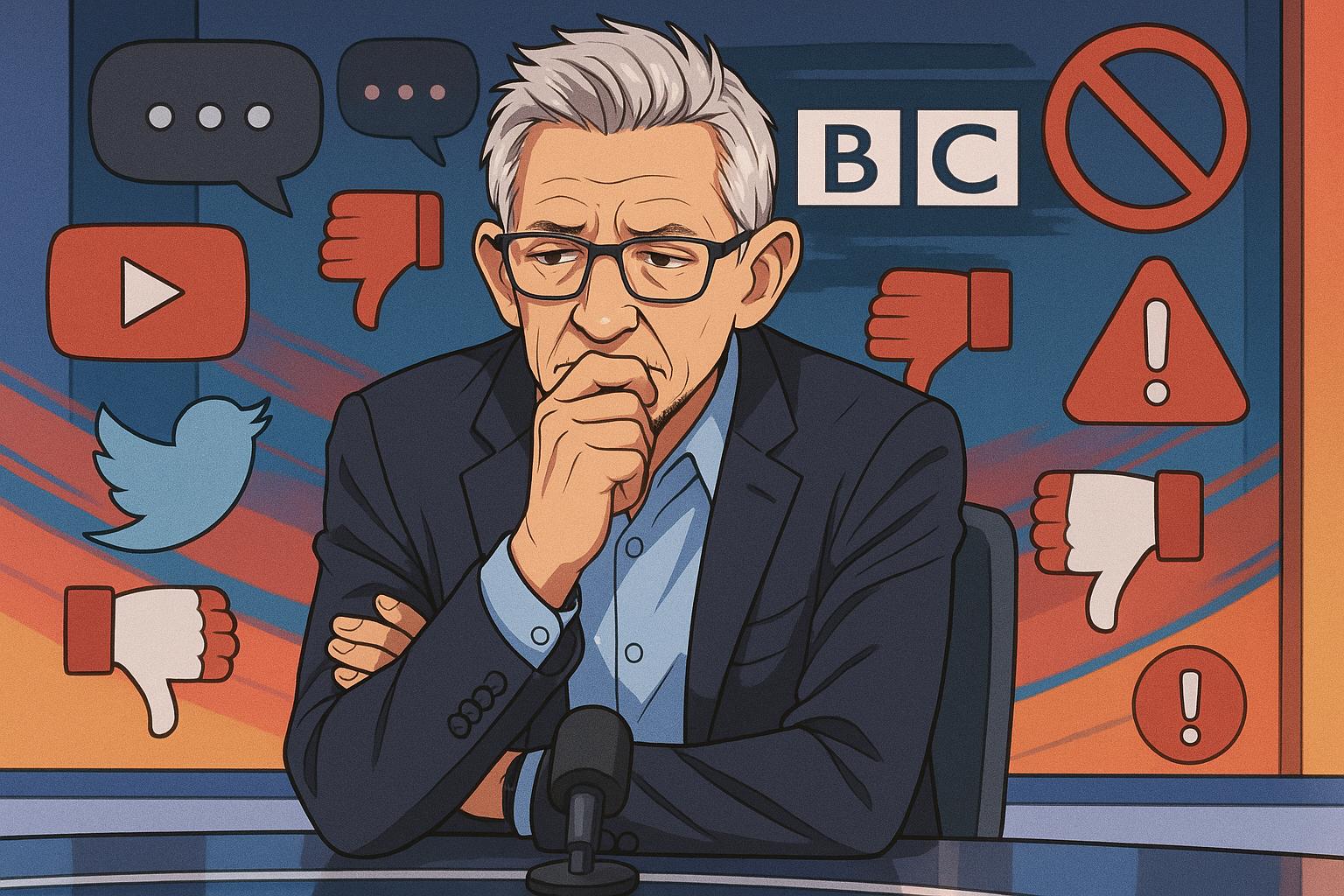Gary Lineker, the BBC's highest-paid presenter and a prominent figure in British broadcasting, has once again found himself at the centre of a controversy following his recent social media activity, which has led to speculation about his future with the broadcaster. The former England football captain is slated to announce his resignation from the BBC next week, after issuing an apology for sharing a video discussing Zionism that was accompanied by an emoji of a rat. This image has drawn allegations of antisemitism, prompting significant backlash.
Lineker's agent asserted that he was unaware of the offensive nature of the image when he shared it. However, the former footballer quickly deleted the post upon realising its implications. In an official statement, Lineker expressed regret, noting, "I very much regret these references. I would never knowingly share anything antisemitic. It goes against everything I believe in." His apology aims to clarify that while he is committed to advocating for humanitarian issues, the manner of expression requires careful consideration.
The latest incident adds to a lengthy history of controversies surrounding Lineker's outspoken views on social matters. For instance, he has been an advocate for liberal immigration policies, having voiced strong opposition to the UK government's approaches, particularly regarding asylum seekers. In March 2023, he likened government language on asylum policies to that of 1930s Germany, describing the measures as "immeasurably cruel." This remark resulted in a temporary suspension from his hosting role on "Match of the Day." Following public support from colleagues such as Ian Wright and Alan Shearer, who boycotted the show in unity with Lineker, the BBC faced intense pressure, eventually restoring him to the programme.
Throughout his time with the BBC, Lineker has frequently mentioned political issues. In 2018, his criticisms of the Conservative Party led to a public rebuke from fellow BBC presenter Jonathan Agnew, who insisted that Lineker, as a prominent sports figure, should uphold the corporation's impartiality standards. He faced additional scrutiny in 2022 for questioning then-foreign secretary Liz Truss regarding her party's financial links to Russian donors amid the Ukraine conflict.
Lineker's criticisms extend beyond UK politics. Ahead of the 2022 Qatar World Cup, he publicly challenged government advice for LGBT+ fans to "respect the host nation," arguing that such guidance came across as an unacceptable compromise on human rights. Additionally, he has been uncompromising in his stance on humanitarian issues related to Gaza, a position that has further complicated his relationship with the BBC, particularly in light of the current geopolitical climate.
The BBC has taken steps to address the growing tension surrounding its presenters’ social media conduct. A review of social media guidelines was announced, aiming to strike a balance between the freedom of expression of presenters and the expectations of the audience regarding impartiality and civility. This review comes in the wake of Lineker’s critiques and aims to foster an environment that encourages respectful discourse, underscoring the importance of the BBC's editorial values.
As Lineker prepares for what may be the final chapter in his long association with the BBC, he continues to receive significant public and media interest. His ongoing commitment to discuss humanitarian issues suggests that, despite potential exits from flagship roles, he aims to retain a voice on pressing matters. The recent backlash, however, raises questions about the nature of discourse in the current media landscape and the responsibilities of high-profile figures in navigating these turbulent waters.
As he transitions away from "Match of the Day," Lineker will continue to participate in BBC coverage of the FA Cup and the 2026 World Cup, signalling that his presence in sports broadcasting may not vanish entirely. The BBC's handling of his career and the associated controversies will likely play a pivotal role in shaping its public image moving forward, particularly as concerns about impartiality remain a focal point of debate within the broadcaster and beyond.
Reference Map
- Paragraph 1: [1], [2]
- Paragraph 2: [1], [2]
- Paragraph 3: [1], [3]
- Paragraph 4: [1], [3]
- Paragraph 5: [1], [4]
- Paragraph 6: [2], [6]
- Paragraph 7: [2], [6]
- Paragraph 8: [4], [6]
Source: Noah Wire Services
